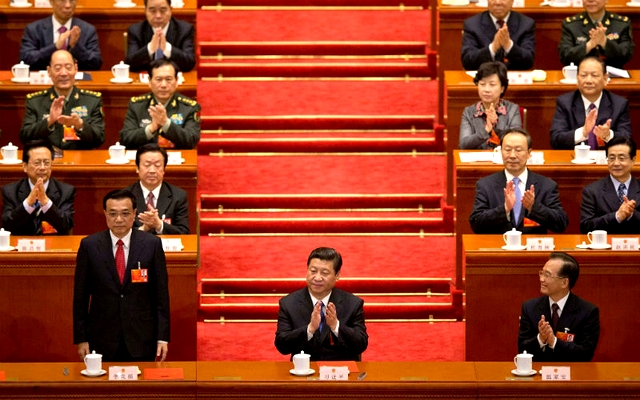China leaks $2bn of secret Microsoft Android patents

Microsoft has maintained for the last three years or so that every Android phone ever made infringes on patents locked away somewhere in Redmond. High-profile legal cases, like Microsoft's suit against the Android-powered Barnes & Noble Nook e-reader, and its successful lawsuits against five major Android smartphone manufacturers, have fueled a huge amount of public speculation as to what exactly those patents are.
The problem is, Microsoft hasn't been saying, and with only a few exceptions has taken every measure possible to keep them hidden from the public.
Now the Chinese government has lifted the lid on the mystery with an astounding and unprecedented series of leaks. A full list containing hundreds of patents has been thrown open to the public. The list describes in minute detail all of the patents that Microsoft believes entitle it to royalties over the more than 900 million android devices currently operating in the world today.
The list of patents was ostensibly produced as part of a Chinese government antitrust review relating to Microsoft's acquisition of Nokia. Microsoft described the results of that review in an April 8 blog post, writing that the Chinese Ministry of Commerce (MOFCOM) "concluded after its investigation that Microsoft holds approximately 200 patent families that are necessary to build an Android smartphone".
The list of 310 patents was published on the Chinese language version of the site, with the English language mirror not including the complete list of patents. There is already a good amount of speculation about what exactly is going on behind the scenes here, but one thing is for certain: Microsoft isn't going to be too happy about this.
The big reveal came amid a period of heightened tension between the Chinese government and the US tech industry. While Microsoft recently ended technical support and updates for its popular Windows XP operating system, despite the pleas of the Chinese, the government in Beijing seemingly struck back by banning the use of Windows 8 from all of its computers over security concerns. The Chinese government has also been reviewing whether domestic banks' reliance on high-end servers from IBM compromises the nation's financial security in light of the Edward Snowden leaks.
Geopolitical squabbles aside, what does the patent list tell us about Microsoft's claims to Android royalties, and how likely they are to get them?
Well, 73 of the total 310 released patents (A full list of which can be found in this word document) are being called "standard-essential patents," or SEPs, implemented in smartphones generally. An additional 127 patents are the ones that Microsoft says are implemented in Android, and for which it deserves royalties.
The list also includes some patents that Microsoft used against Barnes & Noble, including all 14 mentioned in this 2011 Network World article from 2011. Those patents include Nos. 5,889,522 entitled "System Provided Child Window Controls," and 6,339,780 "Loading Status in a Hypermedia Browser Having a Limited Available Display Area".
However, the list opens up a handful of recent and previously unrevealed patents, like 8,255,379, "Customer Local Search," and 5,813,013, "Representing Recurring Events," as well as 6,999,047: "Locating and tracking a user in a wireless network through environmentally profiled data."
Microsoft has previously claimed that Motorola and other Android distributors and manufacturer "unlawfully sell... devices, associated software, and components thereof that infringe the Microsoft patents," and even that "Users making routine use of the Motorola products also infringe the Microsoft patents".
It's thought that Microsoft makes anywhere between $1 billion and $2 billion from Android device makers paying royalties, and Microsoft itself has said that as much as 50 percent of all Android devices are made by companies with patent licensing deals.
So will this latest release of company data by the Chinese government prompt more or less transparency in Microsoft's patent-peddling ways? Let us know what you think in the comments section below.
Update: Microsoft has refused to comment on the leaks, pointing reporters to the 8 April blog post on its dealings with MOFCOM. We'll update this article with official comment as and when it comes.
Published under license from ITProPortal.com, a Net Communities Ltd Publication. All rights reserved.